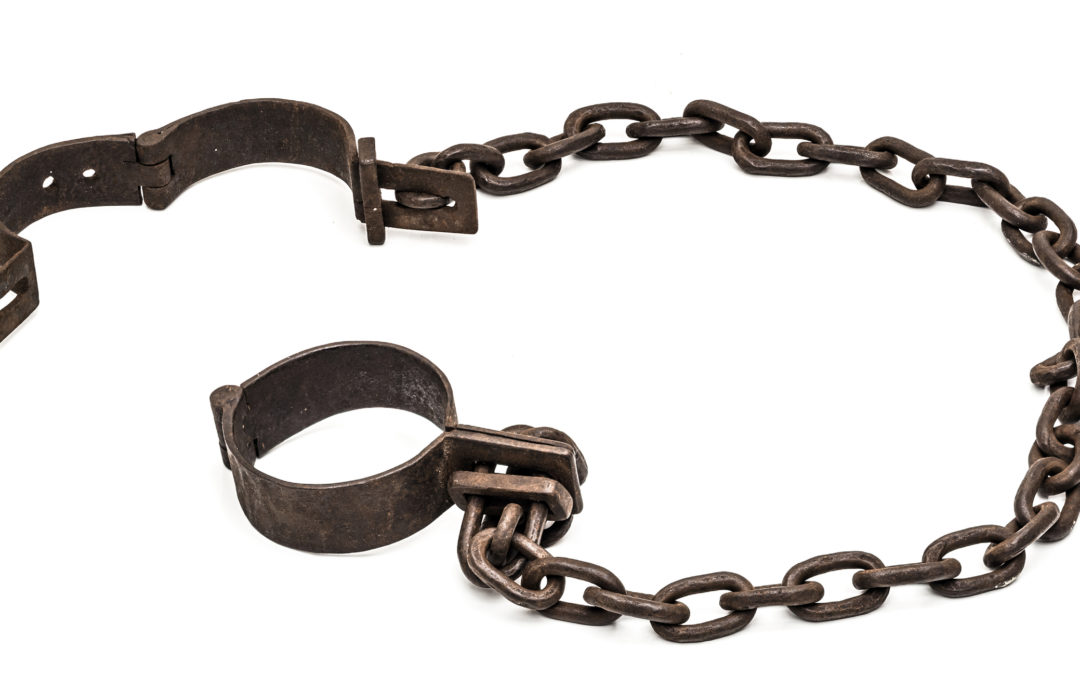VIDEO: Watch SIA 101.12: The Problem of Slavery in the American Founding – Part III (Video time: 49 minutes)
REQUIRED READING: Handout
TERMS, PEOPLE, & PLACES TO IDENTIFY
Where there is a time mark, the answer is provided at the time indicated in the relevant podcast or video. Where there is no time mark indicated, the student should look up in a book or perform an Internet search for the term, person, or place.
- Abstract Principles
- Vitriol
- Justice
- Consent
- Genocide
- Genocidal
- Mulatto
- Colonization
- Manumission
- Millennium
- Axiom
- Precept
- Jurisdiction
- Secession
- Henry Clay
STUDY QUESTIONS
- Summarize why slavery is always wrong. (:45 – 2:09)
- Why is it important to separate personalities from abstract principles? (2:09 – 3:56)
- What is the abstract principle that makes slavery wrong? (3:56 – 4:57)
- Did the institution of slavery of slavery exist before the American founding? (4:57 – 5:19)
- Did slavery continue after the founding? (5:19 – 6:05)
- Why was Thomas Jefferson concerned that slavery continued to exist in the United States? (6:05 – 8:35)
- Regarding Thomas Jefferson’s thought experiment on abolishing slavery, if the United States could eliminate the institution of slavery, his next concern was whether or not white people and black people could live together peacefully as fellow citizens. True or False? (8:35 – 8:50)
- In Thomas Jefferson’s, Notes on the State of Virginia, Query XIV, what does Jefferson predict? Why did Jefferson think this? (9:10 – 18:00)
- Was Jefferson’s prediction correct? (9:10 – 18:00)
- Was Thomas Jefferson’s prediction unfounded? Why? (9:10 – 18:00)
- Later in the United States history whose observations support Thomas Jefferson’s concerns? (9:10 – 18:00)
- Southern slave owners prided themselves on being people of honor. True or False? (17:00)
- Based on the heinous acts perpetrated by slave owners against slaves, were Thomas Jefferson’s concerns in Query XIV reasonable? (18:00 – 19:09)
- This thought experiment on how to justly eliminate slavery leads some United States thinkers such as Thomas Jefferson, Henry Clay, and Abraham Lincoln to conclude _____________________________ would be the most just way to abolish slavery and manumit the people that are enslaved. (19:30 – 22:07)
- Could Thomas Jefferson have manumitted some of his slaves? (22:07 – 23:35)
- Did Jefferson manumit any of his slaves? (22:07 – 23:35)
- What did Jefferson do instead? (22:07 – 23:35)
- Did Jefferson think slavery was wrong? (22:07 – 23:35)
- How do you know this? (22:07 – 23:35)
- What can you conclude from Thomas Jefferson’s writings and his actions? (23:35 – 26:15)
- By understanding and studying the problem of slavery in the American founding, is it more important to focus on people or ideas? Why? (26:15 – 28:40)
- What idea can you use to argue that the only moral or just government is a government by consent? (28:40 – 31:10)
- What are the three main clauses in the United States Constitution that deal with slavery? (33:00 – 35:30)
- Write out what Articles I – III of the United States Constitution create. (35:50 – 36:54)
- Article IV of the United States Constitution outlines how states will interact with each other. True or False? (36:54)
- In 1787 different states had different laws regarding the institution of slavery. True or False? (37:30)
- During the Constitutional Convention of 1787, what question was posed regarding the handling of the institution of slavery between states that had abolished slavery and states that still practiced slavery? (38:20 – 39:54)
- What concern voiced by the states that still practiced slavery lead to the creation of the Fugitive Slave Act in the United States Constitution, Article IV, Section 2? (39:54 – 41:44)
- What other compromises were created over these same concerns? (41:44 – 42:10)
- Why would the founders be concerned about the threats of secession? (42:10 – 42:56)
- What was the Underground Railroad? (42:56)
- How did the southern slave states view the Underground Railroad? (43:20 – 44:14)
- How did the Fugitive Slave Act later lead to the Fugitive State Law in the Compromise of 1850? Why? (44:14 – 45:30)
- Describe some of the features of the Fugitive Slave Law from the Compromise of 1850? (45:30 – 47:25)

